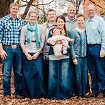How are we different?
A1 Beginner level
Description
Materials
Main Aims
-
To provide clarification, review and practice of adjectives in the context of how people are different
Subsidiary Aims
-
To provide fluency speaking practice in pair work and mingle in the context of how people are different
Procedure (42-49 minutes)
T shows picture of Jack and Jenny. Asks: Do you remember these people? Are the the same or different? Do they like the same things? Today we're also going to talk about how people are different. Instructions: (T chests HO). I want you to walk around the class and try to find someone who... (points to each exercise on HO) is a good cook, has an expensive phone... etc. When you find someone you write their name in the blank. You have 4 minutes. FB: T asks one Ss - Who is a good cook? Pamir. Who is a bad cook? Mustafa? So can we say that Mustafa and Pamir are opposites? Who else? CCQs: ("Opposites") Is an opposite the same, or is it different? Different Can you give me some examples of opposites? (Ss look at sheet)
Instructions: I'm going to give you some opposites. You will see some pictures of opposites on the board. I want you to match the words to the pictures. Work in pairs. T starts slideshow on overhead. Give Ss a couple minutes. When Ss have finished T shows each slide and asks what the opposites are. For each slide, T elicits a sentence (which T has on flashcards). T puts sentence on left side of the board. Drill each sentence one at a time. Next slide. Short/Long: Can we use short/long to talk about only the physical length of something? Like hair, or a dress? Or can we use it for time? For time. For example… The class is long/ short. Boring vs. Bored (during clarification): Is the teacher in the picture boring? Yes Is the class boring? Yes Do the students like the class? No. So we use boring for things we like, or don’t like? Don’t like. What else can be boring? Movies, books, television Young/Old vs. New/Old: Can we use young to talk about an object? Like, my cell phone is young? No. Can we use it to talk about my bag? No. How about my mother? My mother is young? Yes So we use it to talk about people? Yes. How about animals? Yes. And new and old? We use those words to talk about what? Things, object. Once all vocab has been covered, T elicits rule (pointing to sentences): CCQs: Are adjectives used to describe nouns or verbs? Nouns. So can we use them to describe people or things? Both Where does the adjective go in the sentence? After the noun. T points to sentences again and asks, how can we make the adj come before the noun? Ex: The girl is sad, OR The sad girl is crying Explain that the first is a complete sentence, the second needs a verb.
T chests Bingo sheet and pieces of paper. Instructions: We're going to play a game? Do you know Bingo? I will give you this sheet, and some words. I want you to paste 12 of the words into each box on the sheet. T hands out sheets, words, and glue. T collects sheets, redistributes them. Instructions: Now, when I call out a word, you can only cross out the OPPOSITE of the word I say. Whoever crosses off all their words first wins!
Instructions: (T chests HO) I want you to finish the sentence by filling in the opposite. You have Three minutes. Work in pairs. T models the first exercise. FB: T writes answers on the board.
Instructions: (T chests list of adjectives) I want you to write three sentences just like the ones in the activity. Work alone. You have 4 minutes. ICQs: Should you write about Jenny and Jack? No. Should you write about me and my family? No. Should you write about someone you know? A sibling, a friend, or parent? Yes How many sentences? Three Can you write more than three? Sure.
Instructions: Now, in pairs (T puts Ss with different pairs), tell your partner about your friend/sibling/parent, and how you are different from them. Use you sentences to help you.
T writes on board: My brother has expensive clothes, but I have cheap clothes. How do I make this a question to someone in the class? WRITE CAREFULLY. Q: _____________________ have expensive clothes? (T writes in the answer). A: Yes, I do. Q: ____________ shirt new? A: No, it's not. Instructions: I want you to take you sentences, and make your sentences questions. Stand up, walk around the room, and ask the other Ss questions. ICQs: So are we writing or speaking? Speaking. Are we asking questions, or regular sentences? Asking questions. Are we asking about our partner's sibling, or about our partner? Our partner How are you going to make your questions? By using what we wrote on our papers.

